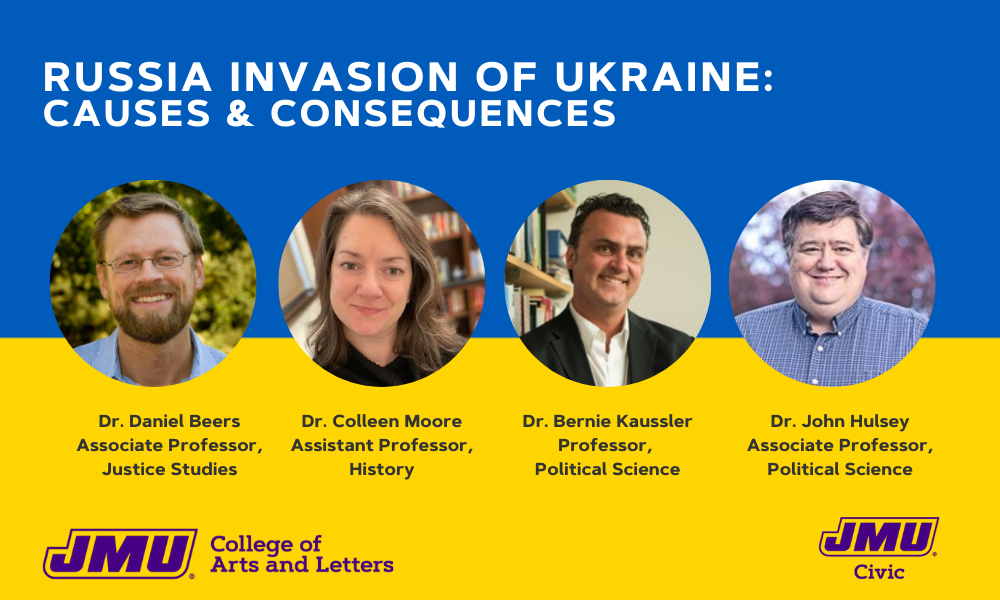Russia Invasion of Ukraine: Causes and Consequences
News
SUMMARY: Faculty experts from the College of Arts and Letters at James Madison University discuss the history and context of the Russian invasion of Ukraine and the humanitarian and geopolitical consequences.
Faculty experts from the College of Arts and Letters at James Madison University discuss the history and context of the Russian invasion of Ukraine and the humanitarian and geopolitical consequences.
Following months of a heavy military build-up on the border and years of conflict over borders, Russian President Vladimir Putin ordered what he said was a “special military operation” against Ukraine on February 24, 2022. A full-scale invasion followed, with Ukrainian President Volodymyr Zelenskyy declaring martial law and saying his country would defend itself.
Aid agencies have warned that the Russian invasion of Ukraine will lead to civilian casualties, soaring humanitarian needs, and likely one of the largest new displacement crises of recent years. Even before the February 2022 invasion, the war between Russia and Ukraine had already claimed 13,000 lives (3,400 of them civilians), displaced 850,000 people, and left almost three million in need of emergency assistance: 1.3 million in government-controlled areas and 1.6 million on the separatist side.
In Russia and around the world, major protests against the invasion have been organized across Europe, Japan, Iran, Australia and the U.S. In Russia, according to OVD-Info, at least 492 people were arrested at antiwar protests on February 26 in 34 Russian cities, bringing the total arrests to more than 3,000 since protests began on February 24.
JMU Faculty Experts:
Colleen Moore is an Assistant Professor of History specializing in the history of Russia and the Soviet Union. She lived in Moscow, Russia, in 2009-2010 as a Fulbright-Hays fellow, and received a 2021 ACLS Project Development Grant to complete her book manuscript on the Russian home front during World War I.
Daniel Beers is an Associate Professor of Justice Studies who worked for a USAID-funded development project with the Ukrainian parliament for three years following the Orange Revolution. He published an article in 2020 with Maria Popova at McGill University on post-Euromaidan reforms in Ukraine.
John Hulsey is an Associate Professor of Political Science at James Madison University specializing in comparative politics, post-conflict societies, European integration and empires.
Bernie Kaussler is Professor of Political Science and the Betty Coe (’64) and Paul J. Cinquegrana Presidential Chair of Faculty Teaching Excellence and Research specializing in International Relations and Foreign Policy.
